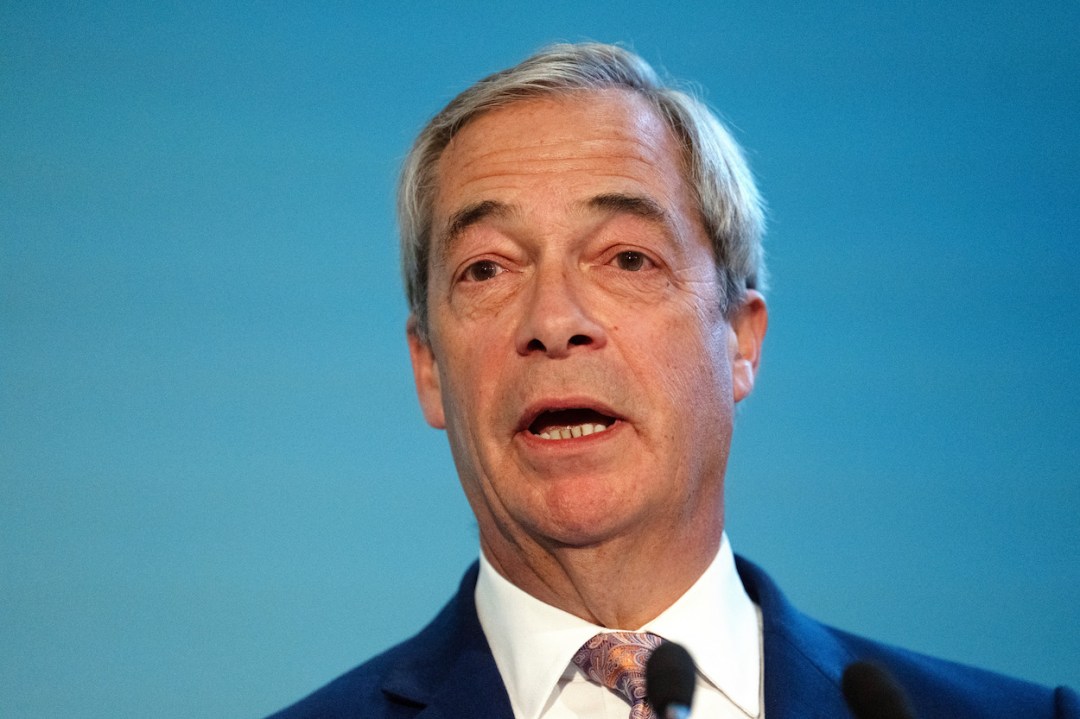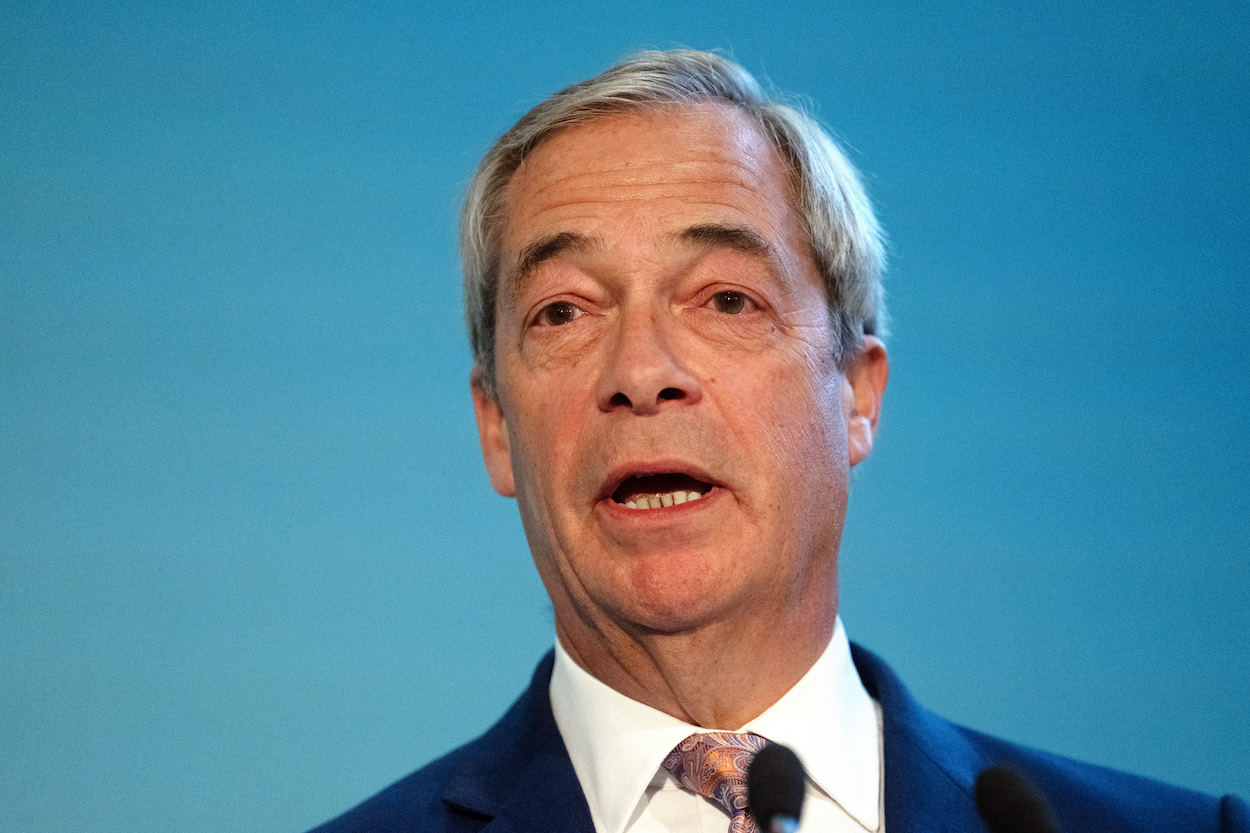At 94 per cent of GDP, UK government debt is the fourth highest among advanced European economies. With the tax burden at a record postwar high, there is increasing evidence to suggest that voters’ attitudes on public spending are hardening. Yet any political party proposing retrenchment faces the same problem: what cuts are they prepared to make that will not harm their electoral coalition? Nigel Farage offered his party’s answer to that question at a press conference this morning.
Reform’s ideology is perhaps best characterised by its in-house philosopher James Orr, who champions ‘the politics of national preference.’ The party’s diagnosis of Britain’s ails is that the balance of power between this country’s citizens and outsiders has skewed too far in the latter’s direction. Farage’s spending cuts unsurprisingly therefore focus on non-Brits: a strategy with obvious electoral logic. He is proposing £25 billion of savings calculated by cutting foreign aid (£13 billion), removing the right of EU nationals in the UK to claim benefits (£6 billion) and increasing the cost of the NHS surcharge (£5 billion).
All this was unveiled with the kind of bombastic rhetoric that serves as Reform’s stock-in-trade. Zia Yusuf, the party’s head of policy, said that Labour’s ‘conscious and deliberate decision to continue funding extortionate amounts to foreign nationals’ amounted to ‘treachery’. ‘I think it’s appalling,’ Yusuf said. ‘British people are sick and tired of it.’ Farage declared that, a week before the Chancellor unveils another tax-raising Budget, ‘We’re pleading with Rachel Reeves: let’s enact these, let’s raise and save £25billion, plug the black hole you’ve created and put British people first.’
There will naturally be big questions over Reform’s planned cuts. The aid sector has already criticised the near elimination of overseas support that Reform has suggested. If the party wants to stop the boats, the sector argues, surely it is best to support stable countries abroad? Yet given the proposal’s popularity, it is perhaps unsurprising that both Labour and the Conservatives have chosen to focus their attacks on the removal of benefits for EU nationals. The government has led the charge on this, warning that it would endanger the post-Brexit deal agreed by Boris Johnson and thus risk a trade war.
This is part of a broader strategy that Labour has attempted to deploy in recent months to weaponise Brexit against Farage. Both Keir Starmer and Nick Thomas-Symonds, the minister for EU relations, have sought to respectively blame the Reform leader for small boat crossings and Britain’s red tape burdens. They want to depict Reform as charlatans and chancers who will exacerbate the chaos that voters rejected at the last two elections.
For Farage, the retort is obvious: given the current mess of this administration, how much worse could a government he leads be? With a week to go until Rachel Reeves stands up at the despatch box, Reform is betting that their choice of spending cuts is going to find increasing favour with the electorate in the months ahead – regardless of what the second order consequences of the cuts may be.









Comments